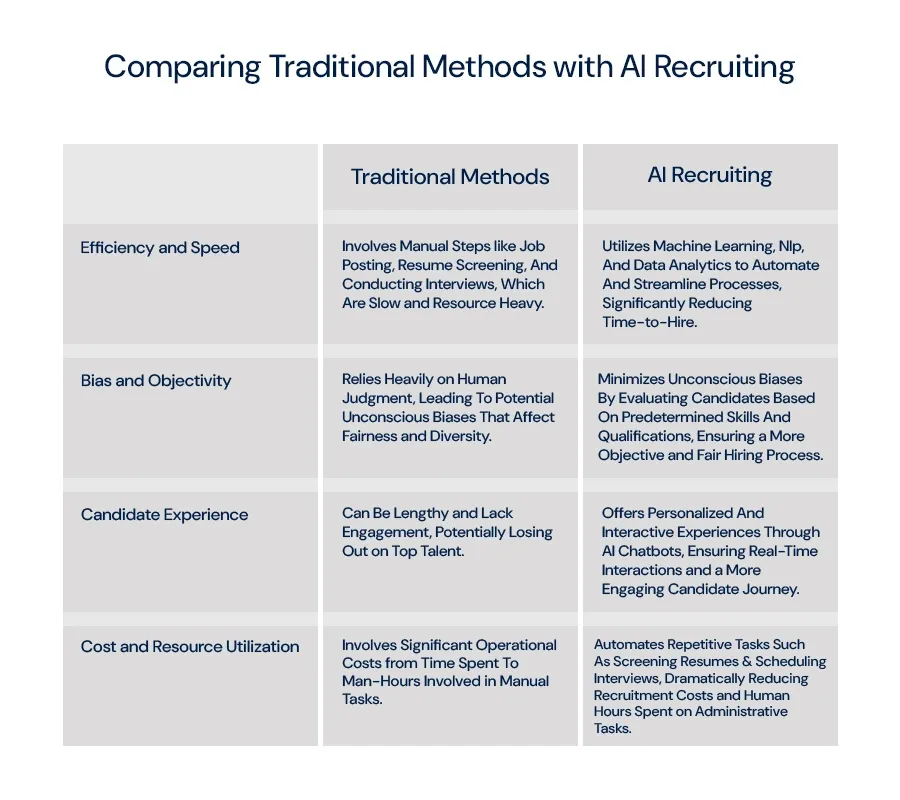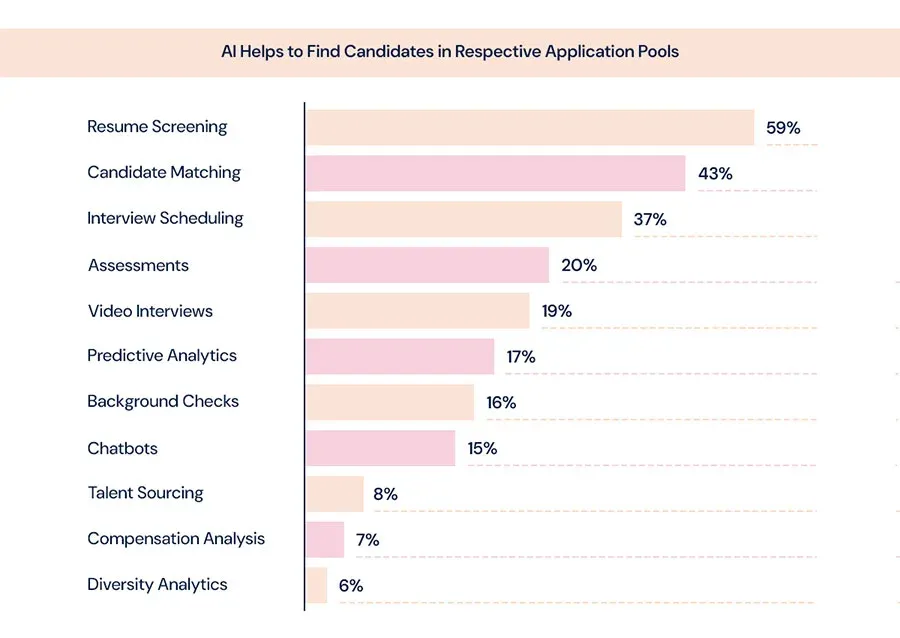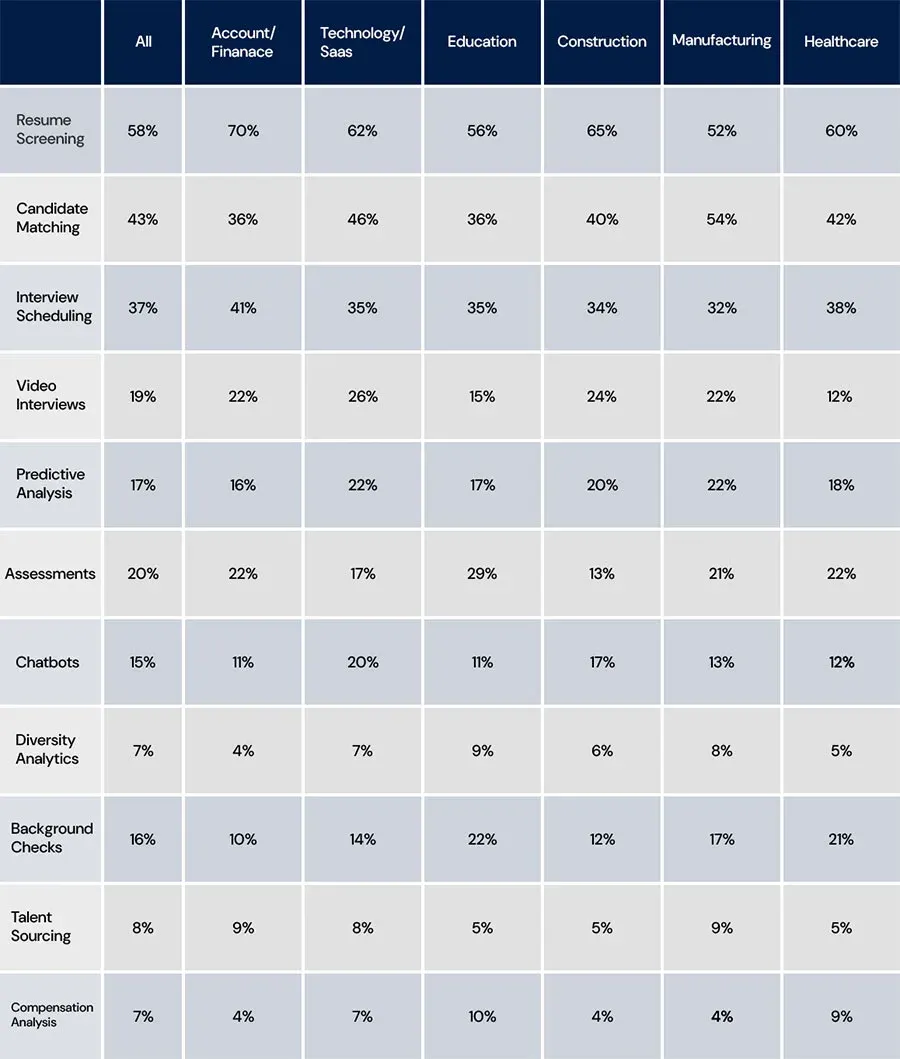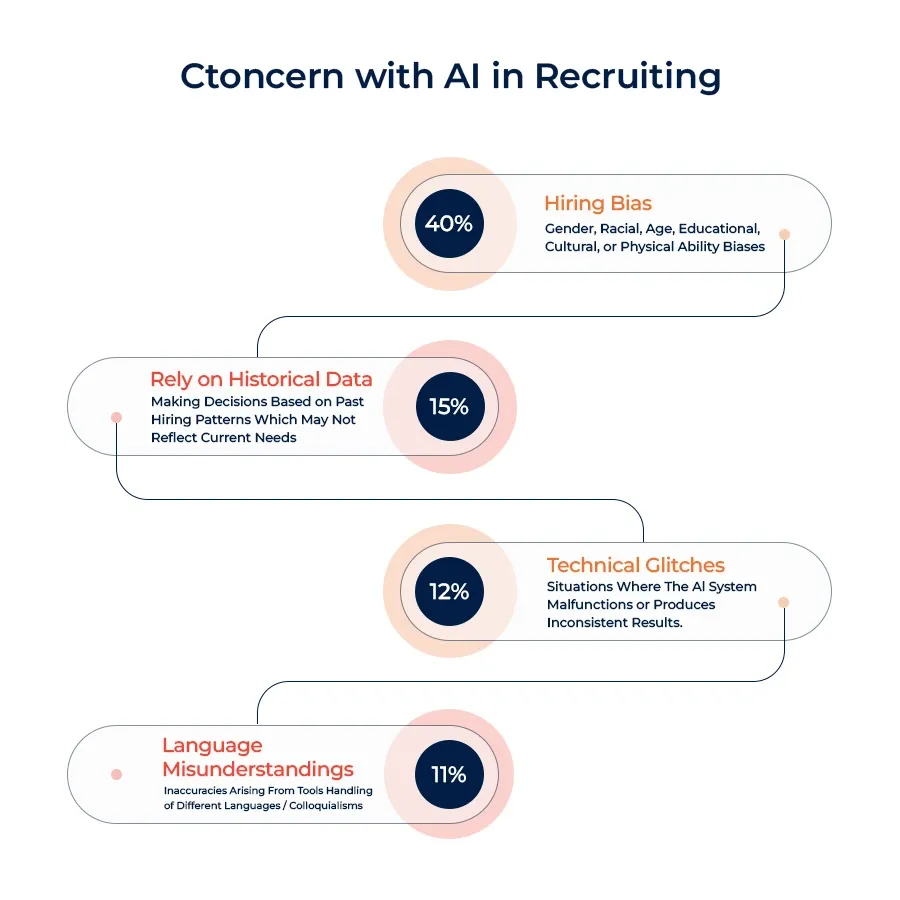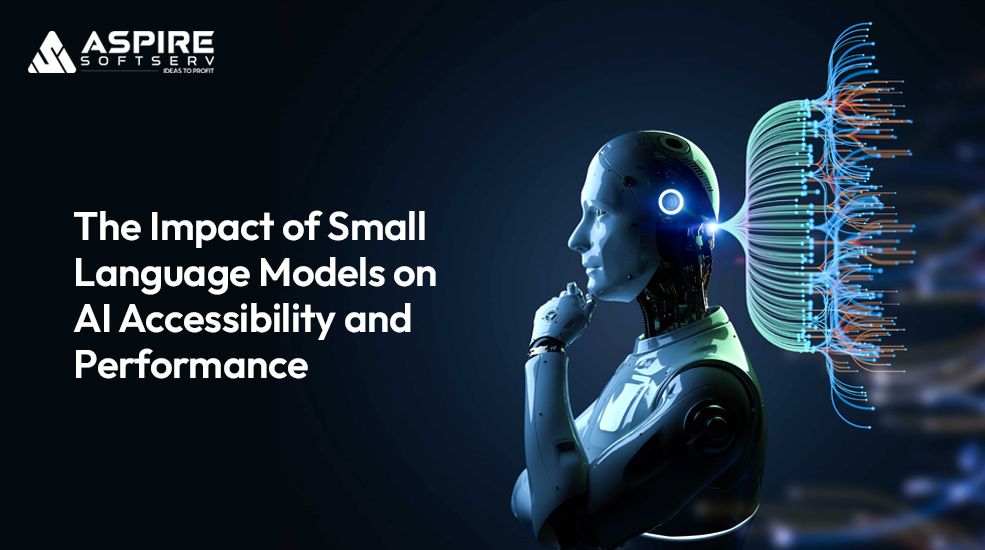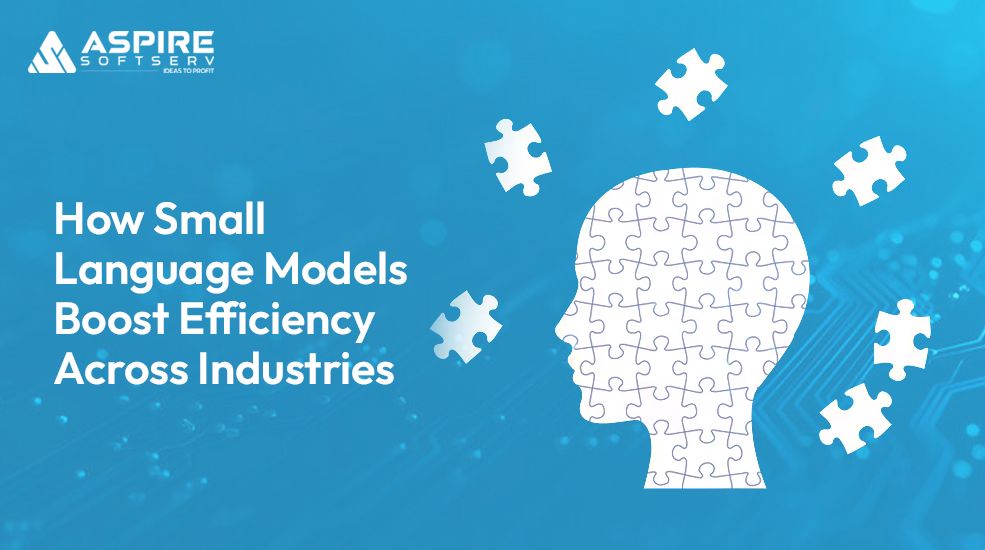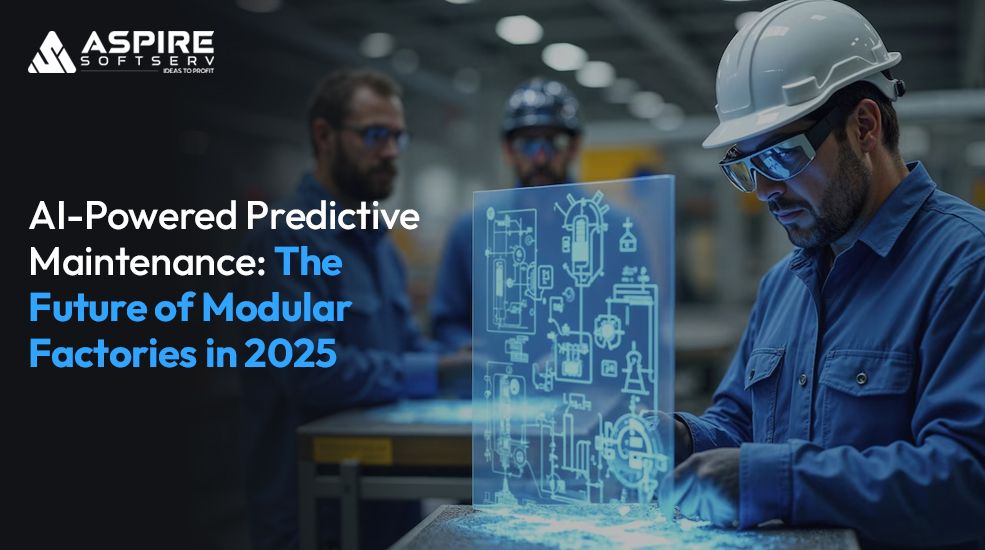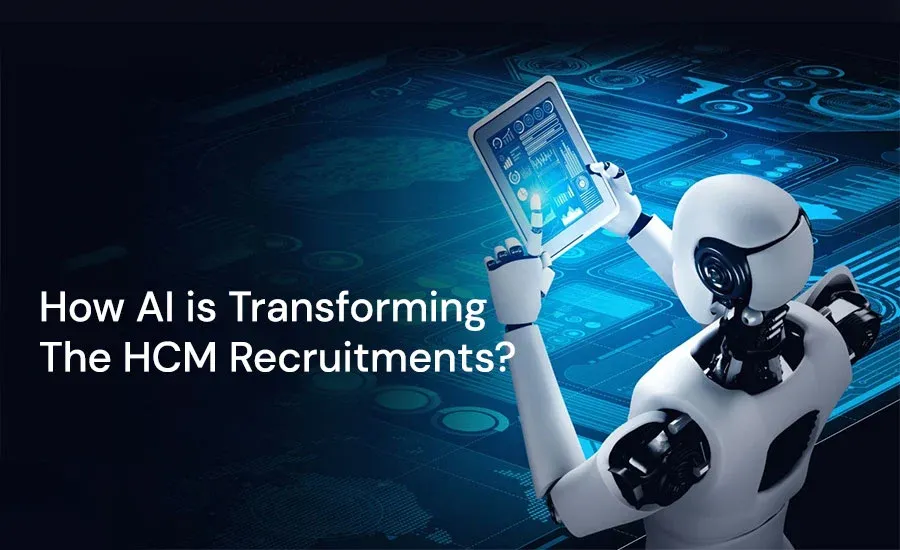
Artificial intelligence (AI) is a game-changer in human capital management (HCM), especially regarding recruitment. This innovative technology automates tasks, makes more intelligent decisions, and creates a better candidate experience.
AI in HR is reshaping the way we hire. From predicting future trends to personalizing the candidate journey, AI-powered tools are helping HR teams make data-driven choices, manage their workforce more efficiently, and boost overall company performance.
Definition of Human Capital Management (HCM)
Human Capital Management (HCM) is an intelligent way to handle your company's most important resource: its people. It covers everything from finding new talent and getting them started to managing performance, pay, and employee growth.
"AI is the game-changer in HCM, turning hiring from a reactive process into a proactive, strategic initiative."
AI in Human Capital Management
Using artificial intelligence (AI) in HCM has completely changed how companies manage their employees. AI tools and systems are modernizing traditional HR methods, making them faster, more data-focused, and better for employees.
Advantages of Using AI in the HCM Recruitment Industry
Artificial Intelligence (AI) is increasingly integral to the Human Capital Management (HCM) recruitment industry. It offers numerous advantages that enhance hiring processes' efficiency, effectiveness, and fairness. Here are some of the key benefits of using AI in recruitment:
Increased Efficiency and Speed
- Automation of Routine Tasks: AI can automate repetitive tasks such as resume screening, interview scheduling, and follow-up communications. This speeds up the recruitment process and allows HR professionals to focus on more strategic activities, such as engaging with top talent and developing recruitment strategies.
- Faster Decision-Making: AI enables speedier decision-making by quickly analyzing vast amounts of data. This helps accelerate the hiring process, reducing the time-to-fill vacancies and ensuring that organizations can secure top candidates before competitors.
Enhanced Data Analytics and Insights
- Analytics: A data-driven approach helps organizations make more informative decisions. Organizations can set their best-fit approach, and using those pre-decided attributes, AI can help to find the best-fit candidates. We already have implemented this feature in one of our client’s applications.
- Trends: AI can provide predictive insights into hiring trends, candidate behaviors, and market conditions. This data-driven approach helps organizations make more informed decisions, optimize recruitment strategies, and forecast future hiring needs.
- Performance Tracking: AI can track the performance of recruitment campaigns and assess the effectiveness of different channels and strategies, enabling continuous improvement and better allocation of resources.
Streamlined Onboarding Process
AI can facilitate a smooth onboarding experience by automating administrative tasks, providing new hires with necessary information, and offering training modules. This helps new employees integrate more quickly and effectively into the organization.
Improved Candidate Experience
- Personalization: AI can personalize the recruitment process for candidates by providing tailored job recommendations, personalized communication, and timely updates. This enhances the candidate's experience and builds a positive impression of the employer brand.
- Chatbots and Virtual Assistants: AI-powered chatbots can engage with candidates in real time, answering their questions, providing information, and guiding them through the application process. This availability enhances candidate satisfaction and engagement.
The hiring process was also altered significantly in the fallout of COVID-19, with recruitment going global and a greater emphasis on self-management and agility skills. The traditional employer-employee relationship also shifted, with more people working as independent contractors on a project basis.
Comparing Traditional Methods With AI Recruiting
How Is AI Used in Your Recruiting Process?
As you go down the list of how AI is being used in recruiting, the purpose becomes more logistical – in other words, optimizing and automating steps in recruitment to speed up the overall process or to free up bandwidth in recruiting team members.
Resume screening: Automated scanning and ranking of resumes
Candidate matching: Aligning candidate profiles with job requirements
Interview scheduling: Using AI-powered tools to coordinate interviews
Assessments: AI-driven tests or games that assess skills or personality
Video interviews: Analyzing video interviews for traits and skills
Predictive analytics: Using AI models to predict candidate success
Background checks: Automated checks on candidate backgrounds
Chatbots: AI-powered chat assistants answering candidate queries
Talent sourcing: Identifying potential candidates from various sources
Compensation analysis: Using AI to recommend compensation packages
Diversity Analytics: Using AI to ensure diverse recruiting.
The data shows that AI is most used to help identify suitable candidates in the overall applicant pool. All the numbers given below are taken as a reference from the workable.
AI Helps to Find Candidates in Respective Application Pools
Not all recruiting teams are the same, especially when looking through industry lenses. Resume screening leads the way in terms of what AI is used for in the recruiting process, and it’s even more so for those in accounting/finance, technology / SaaS, education, and so on.
It turns out that not a lot of trust is placed in AI. 15% say it continues to be a fully human decision. While an additional 56% say it's mostly human with AI as a supportive tool, 21% maintain an equal balance between the both humans and AI while only 6% lean towards AI-driven recommendations. All the given numbers are taken as a reference from workable.
Do You Think That AI Has Cut Down on the Amount of Time Invested in Your Recruiting Process?
Regarding cost, 32% say there are significant cost savings with integrating AI in recruiting.
45% say there are moderate cost savings. Put together, this totals 77% of all respondents saying AI helped them save money in the process.
15% say there is minimal or no change in cost savings.
Concern With AI in Recruiting
AI offers tremendous benefits to HR and recruitment but raises significant concerns. One major worry is the potential misuse of sensitive candidate and employee data. As AI technology becomes more sophisticated, there's a risk of privacy breaches and discriminatory practices.
To address these issues, organizations need to establish clear AI usage policies. These policies should outline how AI tools can be used, what data can be collected and shared, and how to ensure ethical and responsible practices. By setting guidelines and safeguards, companies can harness AI's power while protecting their workforce's privacy.
See Also: What is Explainable AI (XAI): Importance and Use Cases
Conclusion
AI is changing the way we recruit and manage our workforce. It makes processes more efficient, improves decision-making, and enhances the candidate experience. As AI technology advances, its role in providing deeper insights and supporting strategic planning will become even more vital.
For HR professionals, adapting to these changes means learning how to use AI development services to drive success effectively. However, it’s also important to balance the advantages of AI with the need to protect privacy and maintain ethical standards.
Reach Out for Tailored AI Recruitment Solutions!

